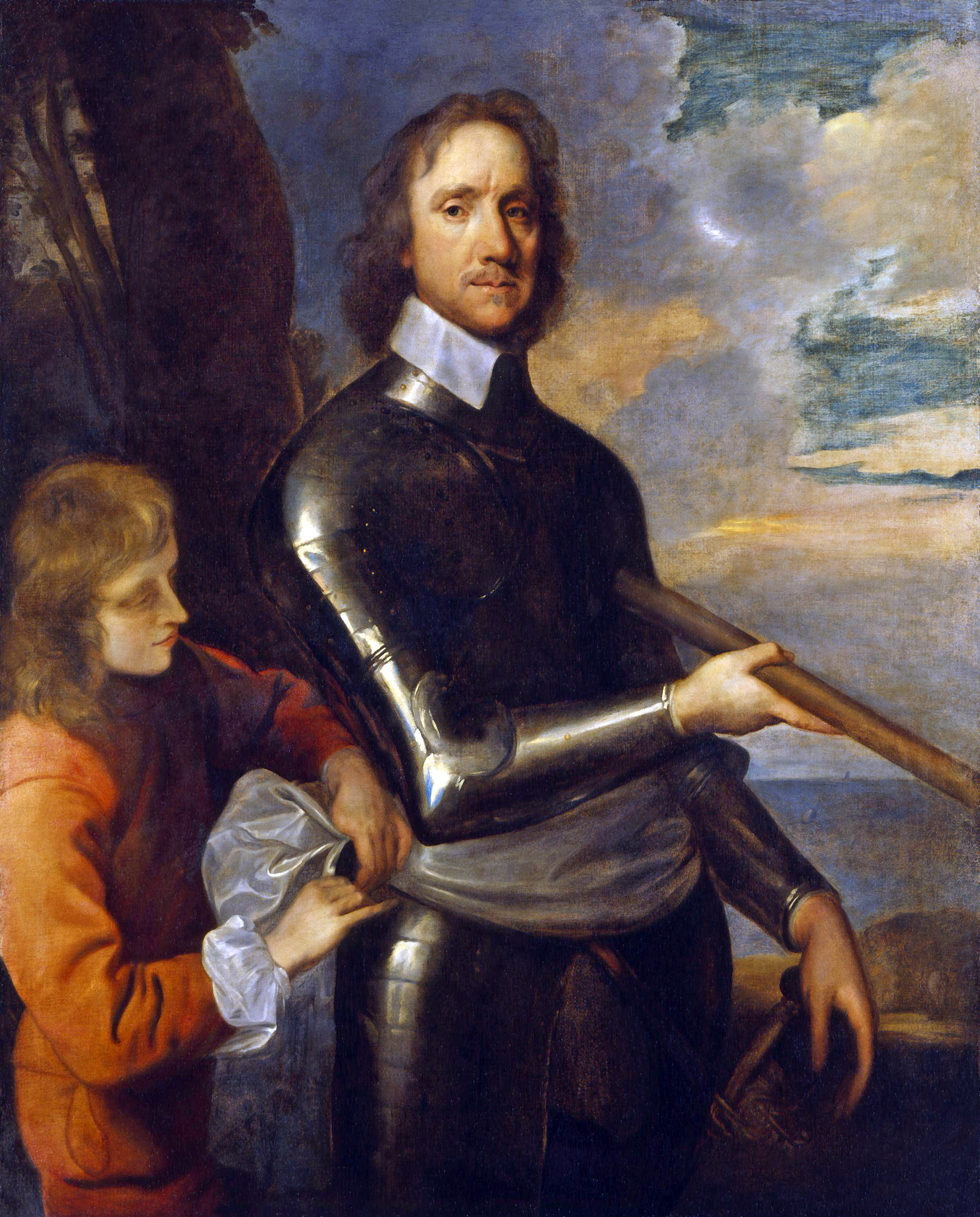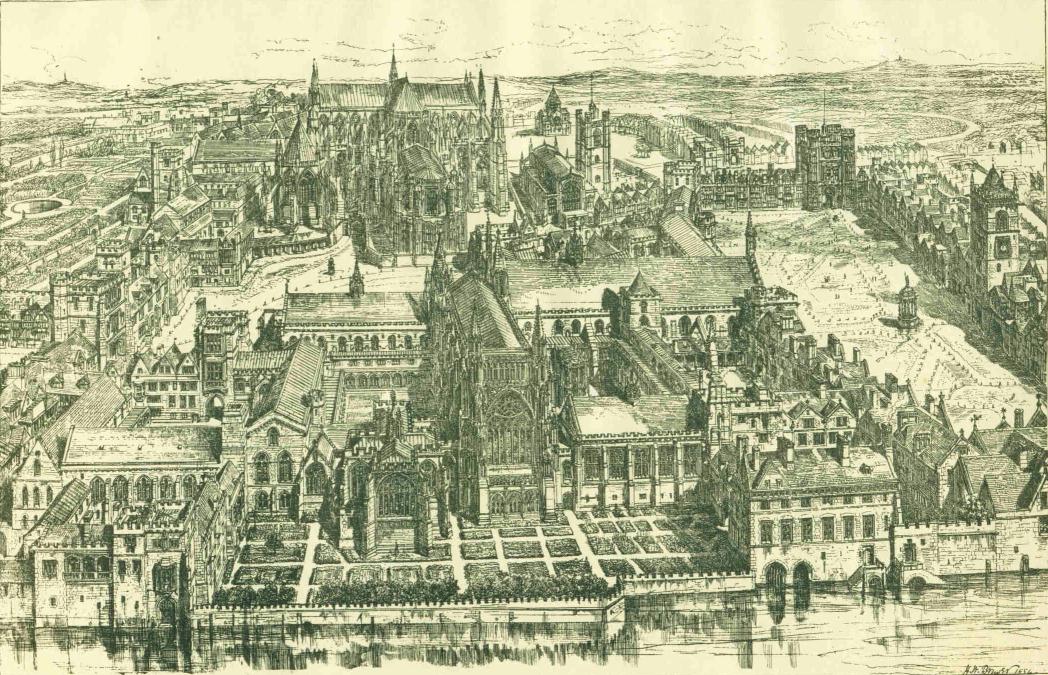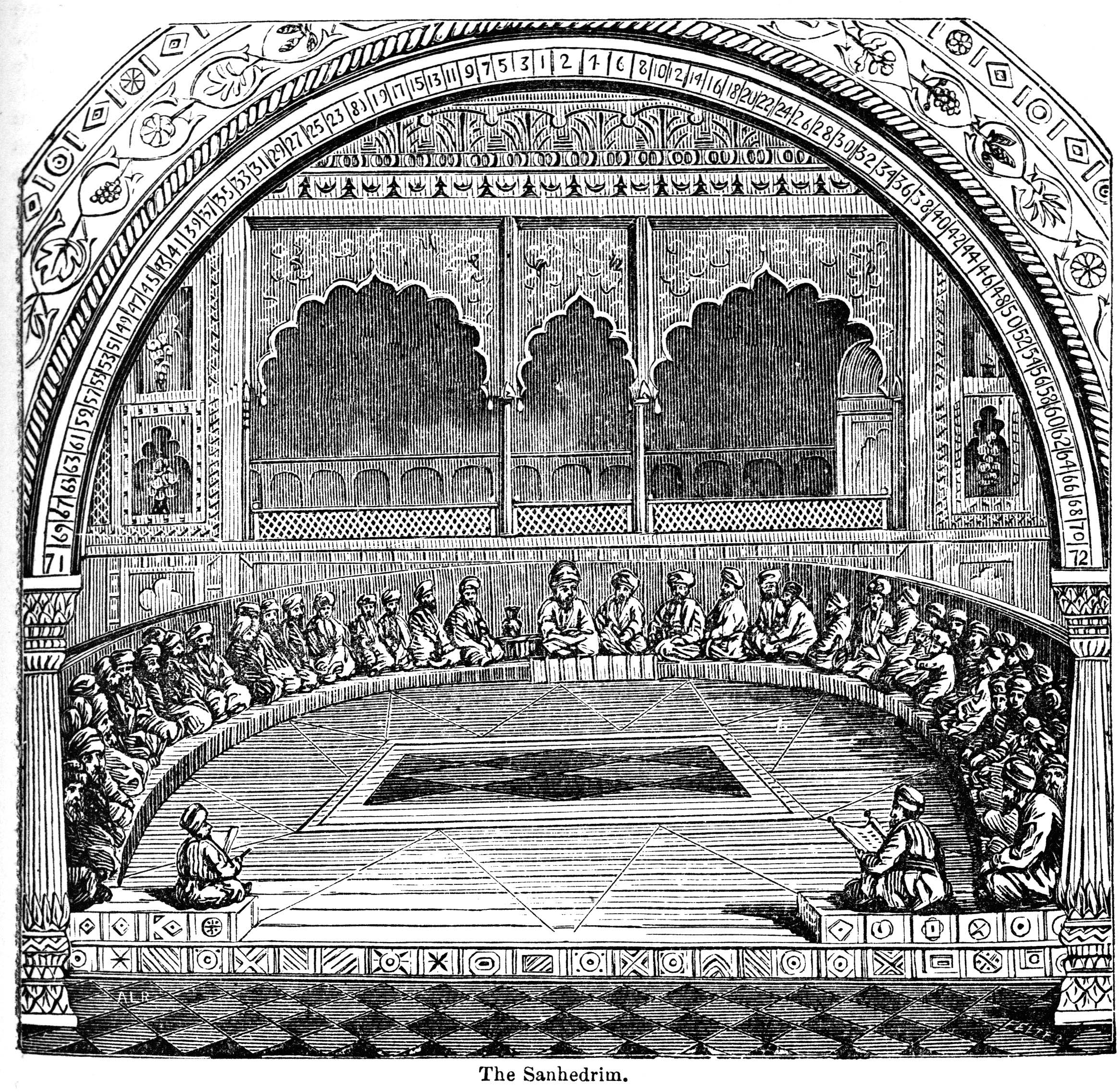|
Barebone's Parliament
Barebone's Parliament, also known as the Little Parliament, the Nominated Assembly and the Parliament of Saints, came into being on 4 July 1653, and was the last attempt of the English Commonwealth to find a stable political form before the installation of Oliver Cromwell as Lord Protector. It was an assembly entirely nominated by Oliver Cromwell and the Army's Council of Officers. It acquired its name from the nominee for the City of London, Praise-God Barebone. The Speaker of the House was Francis Rous. The total number of nominees was 140, 129 from England, five from Scotland and six from Ireland (see the list of MPs). After conflict and infighting, on 12 December 1653, the members of the assembly voted to dissolve it. It was preceded by the Rump Parliament and succeeded by the First Protectorate Parliament. Need for a parliament Following the execution of King Charles, the Rump Parliament was the last remaining element of the English government. It had little or no ... [...More Info...] [...Related Items...] OR: [Wikipedia] [Google] [Baidu] |
English Commonwealth
The Commonwealth of England was the political structure during the period from 1649 to 1660 when Kingdom of England, England and Wales, later along with Kingdom of Ireland, Ireland and Kingdom of Scotland, Scotland, were governed as a republic after the end of the Second English Civil War and the High Court of Justice for the trial of Charles I, trial and execution of Charles I. The republic's existence was declared through "An Act declaring England to be a Commonwealth", adopted by the Rump Parliament on 19 May 1649. Power in the early Commonwealth was vested primarily in the Parliament and a English Council of State, Council of State. During the period, fighting continued, particularly in Ireland and Scotland, between the parliamentary forces and those opposed to them, in the Cromwellian conquest of Ireland and the Anglo-Scottish war of 1650–1652. In 1653, after dissolution of the Rump Parliament, the Army Council (1647), Army Council adopted the Instrument of Gover ... [...More Info...] [...Related Items...] OR: [Wikipedia] [Google] [Baidu] |
First Anglo-Dutch War
The First Anglo-Dutch War, or First Dutch War, was a naval conflict between the Commonwealth of England and the Dutch Republic. Largely caused by disputes over trade, it began with English attacks on Dutch merchant shipping, but expanded to vast fleet actions. Despite a series of victories in 1652 and 1653, the Commonwealth was unable to blockade Dutch trade, although English privateers inflicted serious losses on Dutch merchant shipping. The economic damage eventually led to the Treaty of Westminster (1654), Treaty of Westminster in 1654 where the Dutch were forced to make minor concessions to the Commonwealth. Both sides agreed to the Act of Seclusion, exclusion of the House of Orange from the office of Stadtholder, but failed to resolve underlying commercial issues. In 1665, Dutch objections to the Navigation Acts and English concerns over their rival's trading practices led to the Second Anglo-Dutch War. Background In the 16th century, Kingdom of England, England had support ... [...More Info...] [...Related Items...] OR: [Wikipedia] [Google] [Baidu] |
Henry Scobell
Henry Scobell (baptised 1610; died 1660) was an English Parliamentary official, and editor of official publications. He was clerk to the Long Parliament, and wrote on parliamentary procedure and precedents. Life Initially under-clerk of the parliaments, Scobell became Clerk of the House of Commons from 5 January 1649, his predecessor Henry Elsynge having resigned. Scobell also held a position as censor of publications, and then was Clerk of the Parliaments for life with effect from 14 May 1649. He was the first editor, from 9 October 1649, of ''Severall Proceedings in Parliament'', an early official newspaper, and the second of Parliament's publications. In the Rump Parliament, Scobell found himself in the middle of the clashes leading to its dissolution in 1653. He remained Clerk to Barebone's Parliament. From 1655 Scobell became Clerk to the Council of State A council of state is a governmental body in a country, or a subdivision of a country, with a function tha ... [...More Info...] [...Related Items...] OR: [Wikipedia] [Google] [Baidu] |
Speaker Of The House Of Commons (United Kingdom)
The Speaker of the House of Commons is the presiding officer of the House of Commons of the United Kingdom, House of Commons, the lower house and primary chamber of the Parliament of the United Kingdom. The current speaker, Lindsay Hoyle, was elected Speaker on 4 November 2019, following the retirement of John Bercow. Hoyle began his first full parliamentary term in the role on 17 December 2019, having been unanimously re-elected after the 2019 United Kingdom general election, 2019 general election. The speaker Speaker (politics), presides over the House's debates, determining which members may speak and which Amend (motion), amendments are selected for consideration. The speaker is also responsible for maintaining order during debate, and may punish members who break the rules of the House. By convention, the Speaker is strictly non-partisan; accordingly, a Speaker is expected to renounce all affiliation with their former political parties when taking office and afterwards. T ... [...More Info...] [...Related Items...] OR: [Wikipedia] [Google] [Baidu] |
Short Parliament
The Short Parliament was a Parliament of England that was summoned by King Charles I of England on 20 February 1640 and sat from 13 April to 5 May 1640. It was so called because of its short session of only three weeks. After 11 years of personal rule between 1629 and 1640, and on the advice of the Earl of Strafford, Charles recalled Parliament to obtain money to finance his military struggle with Scotland in the Bishops' Wars. However, like its predecessors, the new parliament had more interest in redressing grievances than in voting the King funds for his war against the Scottish Covenanters. John Pym, MP for Tavistock, quickly emerged as a major figure in debate; his long speech on 17 April expressed the refusal of the House of Commons to vote subsidies unless royal abuses were addressed. John Hampden, in contrast, was persuasive in private: he sat on nine committees. A flood of petitions concerning royal abuses were coming up to Parliament from the country. Charles's ... [...More Info...] [...Related Items...] OR: [Wikipedia] [Google] [Baidu] |
Whitehall
Whitehall is a road and area in the City of Westminster, Central London, England. The road forms the first part of the A roads in Zone 3 of the Great Britain numbering scheme, A3212 road from Trafalgar Square to Chelsea, London, Chelsea. It is the main thoroughfare running south from Trafalgar Square towards Parliament Square. The street is recognised as the centre of the Government of the United Kingdom and is lined with numerous departments and ministries, including the Ministry of Defence (United Kingdom), Ministry of Defence, Horse Guards (building), Horse Guards, the Cabinet Office, and much of the Foreign Office. Consequently, the name "Whitehall" is used as a metonymy, metonym for the British Civil Service (United Kingdom), civil service and British government, government, and as the geographic name for the surrounding area. The Palace of Whitehall previously occupied the area and was the residence of Kings Henry VIII through to William III of England, William III, bef ... [...More Info...] [...Related Items...] OR: [Wikipedia] [Google] [Baidu] |
Anabaptist
Anabaptism (from Neo-Latin , from the Greek language, Greek : 're-' and 'baptism'; , earlier also )Since the middle of the 20th century, the German-speaking world no longer uses the term (translation: "Re-baptizers"), considering it biased. The term (translation: "Baptizers") is now used, which is considered more impartial. From the perspective of their persecutors, the "Baptizers" baptized for the second time those "who as infants had already been baptized". The denigrative term Anabaptist, given to them by others, signifies rebaptizing and is considered a polemical term, so it has been dropped from use in modern German. However, in the English-speaking world, it is still used to distinguish the Baptizers more clearly from the Baptists, a Protestant sect that developed later in England. Compare their self-designation as "Brethren in Christ" or "Church of God": . is a List of Christian movements, Christian movement which traces its origins to the Radical Reformation in the 1 ... [...More Info...] [...Related Items...] OR: [Wikipedia] [Google] [Baidu] |
Independent (religion)
In Welsh and English church history, Independents advocated local congregational control of religious and church matters, without any wider geographical hierarchy, either ecclesiastical or political. They were particularly prominent during the Wars of the Three Kingdoms as well under the Commonwealth and Protectorate. The New Model Army became the champion of Independent religious views and its members helped carry out Pride's Purge in December 1648. Unlike their Presbyterian allies, Independents rejected any state role in religious practice, including the Church of England, and advocated freedom of religion for most non-Catholics. Their religious views led some to back radical political groups such as the Levellers, who supported concepts like Republicanism, universal suffrage and joint ownership of property. The Independents later became known as the Congregationalists, who are part of the wider Reformed tradition of Christianity. History At the outbreak of the First Eng ... [...More Info...] [...Related Items...] OR: [Wikipedia] [Google] [Baidu] |
Sanhedrin
The Sanhedrin (Hebrew and Middle Aramaic , a loanword from , 'assembly,' 'sitting together,' hence ' assembly' or 'council') was a Jewish legislative and judicial assembly of either 23 or 70 elders, existing at both a local and central level in the ancient Land of Israel. There were two classes of Rabbinite courts called sanhedrins: Greater and Lesser. A lesser Sanhedrin of 23 judges was appointed to sit as a tribunal in each city. There was only one Great Sanhedrin of 70 judges, which, among other roles, acted as a supreme court, taking appeals from cases that lesser courts decided. In general usage, ''the Sanhedrin'' without qualifier usually refers to the Great Sanhedrin, which was presided over by the Nasi, who functioned as its head or representing president, and was a member of the court; the Av Beit Din or the chief of the court, who was second to the Nasi and 69 general members. In the Second Temple period, the Great Sanhedrin met in the Temple in Jerusalem, in a bu ... [...More Info...] [...Related Items...] OR: [Wikipedia] [Google] [Baidu] |
John Rogers (Fifth Monarchist)
John Rogers (1627 – 1671?) was an English Fifth Monarchist preacher of the 1650s, and later a physician. Background He was born at Messing in Essex, the second son of the clergyman Nehemiah Rogers, by his wife Margaret. Because of his religious views, he was turned out by his father in 1642. He returned to studies of medicine, as a servitor at King's College, Cambridge. The First English Civil War had broken out, and the servitors were dismissed. Rogers almost starved, but in 1643 he obtained a post in a school in Lord Brudenel's house in Huntingdonshire, and afterwards at the free school at St. Neots. :s:Rogers, John (1627-1665?) (DNB00) Preacher In a short time he became known in Huntingdonshire as a preacher, and, returning to Essex, he received presbyterian ordination in 1647. About the same time he married a daughter of Sir Robert Payne of Midloe in Huntingdonshire, and became 'settled minister' of Purleigh in Essex, a valuable living. Rogers engaged a curate, and ... [...More Info...] [...Related Items...] OR: [Wikipedia] [Google] [Baidu] |
Fifth Monarchist
The Fifth Monarchists, or Fifth Monarchy Men, were a Protestant sect with millennialist views active between 1649 and 1660 in the Commonwealth of England. The group took its name from a prophecy that claimed the four kingdoms of Daniel would precede the fifth, which would see the establishment of the kingship and kingdom of God on Earth. One of a number of Nonconformist sects that emerged during the Wars of the Three Kingdoms, its best-known adherent was Major-General Thomas Harrison, who was executed in October 1660 as a regicide. Oliver Cromwell was a sympathiser until 1653, when many Fifth Monarchists opposed his creation of The Protectorate. Members believed the execution of Charles I in January 1649 marked the end of the Fourth Monarchy and viewed the Protectorate and 1660 Stuart Restoration as preventing the coming of the Fifth. Since some believed this justified military action, they were persecuted by both regimes and never became a mass movement. Many of their re ... [...More Info...] [...Related Items...] OR: [Wikipedia] [Google] [Baidu] |









